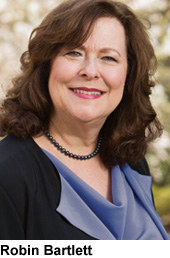The author recalls an “aha” moment that changed her career path forever.

Being mentored and mentoring others are essential for the development of nurses and the nursing profession. These activities reflect core areas of the Honor Society of Nursing, Sigma Theta Tau International (STTI), which include education, leadership, and career development. Already a leader in promoting and fostering mentoring relationships for nurses, STTI is expanding its mentoring program. Details will be unveiled later this month.
 Growing in the professional role of nursing involves being mentored and mentoring others. If you are a new nurse, or seeking to move to a new area of nursing, or wanting to advance your nursing career, having a mentor can be one of the most empowering and effective ways to reach your goal. Whether formal or informal, mentoring can guide you, help you access resources, and provide you with ideas invaluable in pursuing and achieving your goals.
Growing in the professional role of nursing involves being mentored and mentoring others. If you are a new nurse, or seeking to move to a new area of nursing, or wanting to advance your nursing career, having a mentor can be one of the most empowering and effective ways to reach your goal. Whether formal or informal, mentoring can guide you, help you access resources, and provide you with ideas invaluable in pursuing and achieving your goals.
Being mentored
When I was seeking opportunities for growth many years ago, I applied to a leadership externship program offered by STTI. In doing so, I reached out to some faculty members who informally mentored me and supported my application by writing letters of recommendation. Among others, Billye Brown, EdD, RN, FAAN, past president of STTI, nominated me, and I was subsequently accepted for the program. Melanie Dreher, PhD, RN, FAAN, president of STTI at the time, assigned me to Past President Fay Bower, DNSc, RN, FAAN—who, as my formal mentor, guided me through meetings with nurse leaders from around the world. I had a master’s degree, an important degree in its own right, but I was surrounded by leaders who were PhD-prepared. As you might imagine, that experience was transformative for me.
Two of my many vivid memories from that time are:
- I was invited to attend one of the Arista think-tank meetings in Indianapolis that brought together leaders from nursing and other disciplines to envision the future and how nurses could best contribute to the health of the world’s people. Wow! I was so excited to hear these leaders share their ideas. I was listening intently when Bower suddenly asked, “Robin, what do you think?” Well, I was surprised to be called on and, I admit, a little frightened, but I was honored to be heard in that meeting!
- Another memory of that leadership externship experience was the honor of being present when several past STTI presidents discussed the honor society’s future. As I looked around a table that included Beth Vaughn-Wrobel, EdD, RN, FAAN; Sister Rosemary Donley, PhD, APRN, FAAN; and other past STTI presidents, I thought: “I want to be properly prepared to contribute to discussions about the future of nursing and the honor society. Aha! I must pursue my PhD!”
With the skills, knowledge, expertise, and confidence I gained through that experience—and some amazing reference letters from those nursing leaders!—I did pursue a Doctor of Philosophy degree immediately afterward, and my career path forever changed.
Coincidentally, a few years after my mentoring experience with Bower, I was at an STTI Biennial Convention and picked up her new book, Nurses Taking the Lead: Personal Qualities of Effective Leadership (Elsevier). Thumbing through it, I read about a mentee she had guided and suddenly realized she was talking about me! Fortunately, she was at the same meeting, and I had the chance to reconnect with her and reminisce about our time together. What a great mentor she was for me!
I have been fortunate to have many great mentors—both formal and informal—over the course of my professional journey. They’ve been invaluable in planning for each phase of my career. Today, as I continue in my career, I probably mentor more than receive mentoring, but I still value the wise counsel and guidance of mentors.
Mentoring
In my current role as professor in the School of Nursing at the University of North Carolina at Greensboro, where I direct the PhD program, and in other aspects of my professional life, I have countless opportunities to work with highly motivated people. Some are prelicensure nursing students, excited to learn about the profession and what it has to offer (and what they can offer the profession). Others are experienced nurses seeking their next challenge. In my research, I have the opportunity to work with students and junior faculty members from nursing and other disciplines.
I receive great pleasure in watching these students, experienced nurses, and faculty members take risks, learn, grow, strive for, and attain their goals. While I often do not enter these mentor-mentee relationships with specific goals of my own—and often these relationships are informal—I always gain from these experiences. Those who study mentoring agree—it’s not all about the mentee. The mentor benefits, too.
I have collaborated on manuscripts and worked with others on research projects. I’ve come to know mentees’ families and have received great pleasure from watching these developing professionals grow into new roles and take advantage of opportunities. I enjoy mentoring and look for ways to serve in that role.
What’s next for STTI and mentoring?
Leaders of the Honor Society of Nursing, Sigma Theta Tau International have heard you. They are aware of your requests to provide members with more mentoring opportunities—to connect mentees with well-matched mentors. STTI has long provided job listings and on-site, one-time, face-to-face mentoring opportunities at its events. But now the honor society is about to launch new opportunities for those desiring to be mentored and those wanting to share their skills and knowledge by mentoring others.
These are both short-term and longer-term mentoring opportunities. Need to learn how to write an abstract or maybe acquire a new skill in three months or less? That’s considered short-term. Longer-term mentoring opportunities under the new program, lasting approximately six months, are designed for those with goals that may require more planning and preparation. Both offer flexibility and can be extended with mutual agreement of the mentor and mentee.
Learn more about this new STTI program and how you can become involved, both as a mentee and a mentor, on Saturday, 29 July 2017, at the 28th International Nursing Research Congress in Dublin, Ireland, where I will be a member of a panel presenting information on this initiative (see editor’s note below). The new program will also be introduced during the 44th Biennial Convention, to be held from 28 October to 1 November 2017 in Indianapolis, Indiana, USA.
Why not consider joining the inaugural group and be part of this expanded mentoring program? Designed for maximum benefit and ease of use, the program will be carefully evaluated by STTI to ensure that it meets the needs of participants.
Robin Bartlett, PhD, RN, is professor and doctoral program director at The University of North Carolina School of Nursing at Greensboro, Greensboro, North Carolina, USA.
Editor’s note: Robin Bartlett is one of 12 panelists in a session titled Making a Mentoring Match: Advancing the Profession Through Communication, to be held on Saturday, 29 July 2017, at the 28th International Nursing Research Congress in Dublin, Ireland.
Other articles in this series